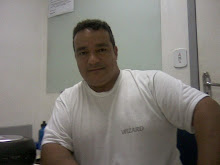
* Pay attention on this example situation:
** Wilma is in her car. She is on her car to work. She is driving to work. I mean, she is driving now, at the time of speaking. The action is not finished.
AM/ARE/IS + verb + ing = present continuous
* drive = I am driving
* work = Anselmo is working
* travel = They are travelling again.
...................................................
## I am doing something = I'm in the middle of doing something; I've started doing it and I haven't finished it yet.
* Often the action is happening at the time of speaking............................................
a) Please don't make so much noise. I'm working on a project. ( don't use " I work on a project")
...........................................
b) Where's your sister? " She is having a bath. ( not " She has a bath)
...........................................
c) Let's go out now. It isn't raining anymore. ( no " it doesn't rain").
...........................................
d) Are you enjoying the party? ( no " Do you enjoy")
...........................................
e) I'm tired. I'm going to bed now.
..........................................
## Sometimes the action is not happening at the time of speaking:
** Steve and Michael are talking in a snack bar. Steve says:
" I'm following an interesting blog about grammar on internet. I'll send the link to you by e-mail."
** Steve is not connected to internet at the time of speaking. He means that he is following it because he started to follow but he haven't seen everything yet. He is in the middle of following it.
** Some more examples:
a) Romulo wants to work in Canada, so he is learning English. ( but perhaps , at the time of speaking, he isn't learning English.)
b) Some friends of mine are working in the USA. ( depending on time zone , perhaps they aren't working right now, but they are there, they work there.)
c) My boss is building his new office. He hopes it will be finished before next summer.
.............................................
TEACHER TIPS:
*** We use the present continuous when we talk about things happening in a period around now.( today/this week/this evening/some hours,minutes ago)
* What is the correct way to say it?
a) You work hard today.
b) You're working hard today.
.......................................
a) Does William work this week?
b) Is William working this week?
.......................................
*** We also use the present continous when we talk about changes happening around now.
a) Unfortunately this horrible flu is spreading very fast and it is taking thousand and thousand of lives away.
b) Is your English getting better? ( don't say :" Does your English get better?).
........................................
** If you are a teacher I would like to know your feelings about this blog. I'm aware of how hard it is to prepare a good explanation for each grammar you teach. Sometimes you find yourself running out of time or patience and it affects your progress as a teacher and certainly your students are going to have a hard work in class. This blog intends to be an important support to your classes. When you became a teacher you were aware of your important mission to give voice to your student and so Am I. Let me help you to abide by it. Send me your oppinion and I'll go all out to improve this blog in order to offer you better conditions to get succes. See ya